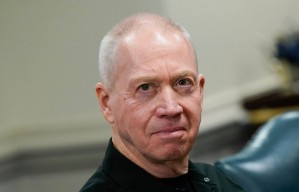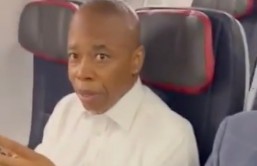Thousands of Brazilians rallied over the weekend during the opening ceremony for the Confederations Cup, booing FIFA president Sepp Blatter and Brazilian president Dilma Roussef at the Estadio Nacional Man Garrincha.
But this wasn't the first time the citizens of Brazil expressed discontent with the government in the recent past-for more than a week, thousands of demonstrators in more than five central cities have been wrapped in battles against riot police, ABC News reported on Tuesday.
What started as a protest in Sao Paulo by political group Movimento Passe Livre (Free Fare Movement) against spikes in public transportation prices has now become a national movement among leftist organizations and college students.
The movement is now called Revolta da Salada, (The Salad Revolution), Revolta do Vinagre, (The Vinegar Revolution) and V for Vinagre, giving a nod to a Brazilian journalist who was taken into police custody for bringing vinegar with him to protests to protect himself against tear gas.
What brought Brazil to this, and what are they fighting for? According to ABC, there were five reasons that led the South American country to an all-out revolt.
Cost of Public Transportation
The Brazilian government recently raised bus and subway fares by 10 cents-this has been noted as the main motive behind this week's protests.
"People are demanding a single thing, a clear and specific one, which is to repeal the increase," 19-year-old history student Caio Martins told Brazilian paper Folha de Sau Paulo. "To negotiate something different than what the population wants would be a betrayal."
World Cup and Confederation Cup Costs
Protesters have put an emphasis on the extraordinary costs the government is shelling out to host two major soccer matches: both the World Cup and the Confederations Cup will be held in stadiums in Brasilia and Rio de Janeiro. Guess who ends up paying for most of the estimated $3.68 billion bill? The citizens.
"We are demanding more respect to the population," a Rio protester told the Associated Press. "They are building these overpriced stadiums and are not worrying about the situation of their own people."
Police Brutality
Upwards of 55 Brazilian citizens were wounded during a protest in Sao Paulo last Thursday, as hundreds of others were arrested, fighting in hand-to-hand combat with police officers. Brazil's defense minister said that the law enforcement has taken "arbitrary and violent" actions.
YouTube videos depict officers donning riot gear, tear gassing and shooting rubber bullets against non-violent activists.
Government Corruption
ABC reported that Brazil is number 69 out of 176 on Transparency International Corruption Percention Index. Brazil has experienced a host of scandals, involving political leaders and prominent business people, who are given freedom to spend government money on personal effects.
The Economy
Brazil is in the midst of an economic slump. Since 2012, the South American country has seen a huge spike in inflation that mostly affects the nation's poorest. Low-earning families also do not have proper access to education and employment.








